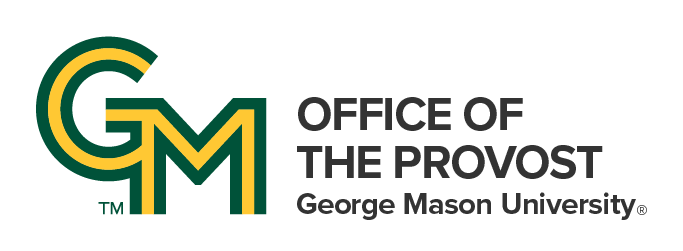At George Mason University, academic policies follow a hierarchical structure with three levels of governance: university-wide policies, college-level policies, and department-level policies. This structure allows units to tailor specialized policies to their practice and curriculum while also ensuring compliance with federal, state, and university regulations and policies. Unit-specific policies are available by college or department.
University-level Policy
- Faculty Handbook: The George Mason Faculty Handbook defines and describes the conditions of full-time instructional, research, and clinical faculty employment; the structures and processes through which the faculty participates in institutional decision-making and governance; and the academic policies of the university as established by its Board of Visitors. The provisions of the Faculty Handbook are incorporated by reference in all full time instructional, research, and clinical faculty employment contracts. These provisions are binding on the university and on individual faculty members. The Faculty Handbook governs the employment relationship of individual faculty members, and sets forth the rights, privileges, and responsibilities of faculty members and of the university. Faculty and academic administrators are expected to read the Faculty Handbook and to be familiar with its contents.
- Administrative/Professional (A/P) Faculty Handbook: The A/P Faculty Handbook outlines policies and procedures governing the terms and conditions of A/P faculty appointments.
- University Catalog: The University Catalog is the authoritative source for all policy related to students’ progress through academic degree programs, and is the definitive source for information on the degree programs themselves.
- University Policy: The University Policy website houses policy whose central purpose concerns the administration of academic programs, especially when such policy involves coordination across multiple units or with external entities. Regulatory requirements, such as those of the Southern Association of Colleges and Schools’ Commission on Colleges (SACSCOC), are also available on this site.
Policy Advisory Bodies
Developing and revising university policy is a collaborative process. The following entities are key contributors to various aspects of policy and interpretation.
- Graduate Council: Promotes excellence and ensures quality and consistency across all graduate programs at George Mason University by reviewing and approving the creation, modification, or discontinuation of graduate programs. It also advises and recommends the provost on academic and admissions policies affecting graduate education.
- Undergraduate Council: Promotes excellence and ensures the quality and consistency across undergraduate programs at George Mason University by reviewing and approving the creation, modification, or discontinuation of undergraduate courses and programs. It also serves in an advisory capacity regarding academic policies for undergraduates.
- Faculty Senate Committees: Faculty Senate Standing Committees consist of Faculty Senators and provide input on academic policies, budgetary issues, and faculty-related policies, among others. University Standing Committees consist of faculty from across the university and provide input on a wide range of issues and policies, as described in their charges.
- Office of Digital Learning: Contributes to governance pertaining to online coursework.
- Office of Access, Compliance, and Community: Monitors and supports George Mason’s commitments to all-inclusive diversity and equal access to opportunity, as well as affirms a culture of integrity that values shared responsibility as a critical element of an inclusive and diverse academic community.
- Policy Management Group: This group is led by the Vice Provost for Academic Affairs. It is comprised of the directors, or their designees, from across the university student services offices (financial aid, admissions, student accounts, accreditation, international programs and services) and has a representative from the Faculty Senate Academic Policies committee. This group is made aware of high-level issues, which they then research and discuss, before drafting a resolution which is then passed along to the appropriate body for deliberation and approval.
